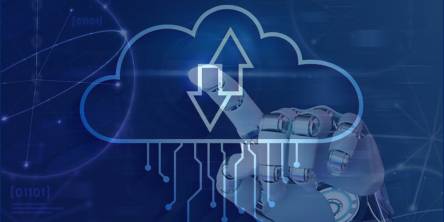Enterprise Data Management - Key Elements and Benefits

Effective enterprise data management is crucial for modern organizations. It helps drive informed decision-making, achieve operational efficiency, ensure data integrity, and comply with regulatory requirements.
What is Enterprise Data Management?
EDM or Enterprise Data Management involves setting policies and standards to organize and manage data access, collection, storage, analysis, security & more to establish data governance within the organization.
The data that is shared within an organization is called Enterprise data. Different departments and even across different geographical regions can share and use this data. Any loss of such data can result in significant financial losses, and enterprises spend resources and time to ensure the security and storage of such data.
Enterprise data includes structured data in spreadsheets, databases & unstructured data such as images, video content and more.
Enterprise data can be in many forms like -
- Operational data which can contain transactional records, customer orders, billing, accounting information and more
- Network alerts and logs from IT infrastructure, data from application developers etc
- Strategic data that is generated from CRM systems, sales reporting, market data, trends and other analytical data
- Application-specific data which can include logistics-related GPS data, IoT sensor data, web and social media application data and much more
An enterprise data management service can help identify and reduce or eliminate existing or potential issues related to enterprise data. It supports different departments of an organization to access accurate data in real time.
Need for Enterprise Data Management (EDM) in business-
Enterprise data management plays a significant role in helping build a standardized system that can be used to source, access, monitor, store, manage, secure & ultimately share the data across different business functions.
Data is a precious commodity for businesses, helping them make informed decisions. Enterprise data management helps collect, analyze & use this data to make real-time decisions.
EDM systems assist in the following -
- Streamlining operations
- Making decisions in real time
- Improve customer experience and generate better responses to customer needs
- Gaining competitive advantage
- Creating Space for innovation
- Regulatory compliances
- Reducing costs
Key Elements of Enterprise Data Management
- Data governance - Data governance forms the foundation for EDM. It lays out the policies, roles and procedures related to data. It ensures that the data's privacy, integrity and security complies with regulatory standards, accountability, and ethical responsibility and offers a seamless flow of information.
- Data integration - Access to data is possible only when the various data streams from multiple sources and formats are integrated and stored in a centralized warehouse or repository. Data integration helps make data uniform, allowing users and stakeholders to access and extract actionable insights. Data integration helps reduce errors, enforces better system collaboration and saves time. Different types of data integration are virtualization, consolidation, propagation & federation.
- Master data management - Master data management consists of organizing, categorizing, centralizing and transforming the streaming data. Master data management ensures that data quality is enhanced, which helps in making informed decisions. Master data management eliminates redundancies by combining tools, processes and software.
- Data security - Data security is generally a big concern for enterprises. Cyber threats are increasing daily, and regulations must be continuously updated to keep up with such threats. Enterprise data management can help implement measures that help prevent and counter data breaches, leaks and thefts. Measures like encryption, Virtual Private Networks (VPN), two-factor authentication, and blockchain technologies can help secure data.
- Data architecture creates guidelines to help businesses streamline data integration, extraction, transformation and modeling. Functional architecture helps organize and secure operational infrastructure, where the data is stored and can be used and manipulated without compromising security.
- Diverse and different data sources - When enterprises query various data sources for a detailed analysis, it's generally time to use enterprise data management. EDMs can help consolidate information from diverse data sources into a single central repository, allowing businesses to overview a particular business area comprehensively.
Benefits of Enterprise Data Management
- Cost reduction through operational efficiencies
- Creates a data-driven culture
- Accelerates launch of new products
- Creates space for innovation and disruption
- Helps in opening up revenue sources with new capabilities and services
- Sets a foundation for monetizing data
- Helps save time, resources and duplication of information
Steps to Strengthen Enterprise Data Management
- Evaluating existing data management systems
- Understanding organizational goals
- Implementing governance in data management using standard practices
- Implementing an agile enterprise data architecture
- Implementing data management tools and technologies
- Developing a data management roadmap
In conclusion, there is ample potential in embracing enterprise data management for businesses. EDM helps connect disparate data sources, helps manage myriads of digital information, increases and speeds up report-making capabilities across different divisions of an enterprise & ensures regulatory compliances. For businesses looking to capitalize on such benefits, connecting with an enterprise data management services company offering extensive data services can help meet its business goals.
Similar Articles
For modern businesses to thrive, ensuring the effective management of inventory stands has become vitally important. Inventory management stands as a cornerstone of success. And the emergence of the Internet of Things (IoT) has introduced a new era of connectivity and efficiency across diverse industries.
Do you know what the following e-commerce companies have in common: Amazon, Walmart, eBay, and more? All of these e-commerce companies' apps make use of Java. Java is decidedly among the leading choices of programming language for e-commerce applications because it offers a world of benefits; for example, since Java code can be run on any platform with a Java Virtual Machine (JVM), users of e-commerce apps made with Java can access the said apps on a variety of devices.
Nikola Tesla in 1926, once described what is now called a mobile phone as a telephone that can fit into one's “vest pocket.” As otherworldly as that idea was then, nearly a century later, the reality is even more astounding.
Given the staggeringly high amounts of data being generated worldwide every single day, it ought to come as no surprise that organizations often struggle to pick the right tools to help them effectively harness the potential of all their data.
Managing properties can be a difficult task with the right tools. Property owners must find and use the best property management software. It can be a long and tedious process as there are many options in the property management software market.
In the ever-evolving financial services landscape, industry challenges are numerous and complex. From stringent regulations to rapidly advancing technology and changing consumer expectations, financial institutions face many obstacles.
The human learning capability is a great resource for helping technology evolve and grow, breaking boundaries, and creating new ones. Emulating the ability of humans to learn at a gradual but retentive pace, Machine Learning is the latest power monster that is redefining human-machine interaction.
In the ever-evolving landscape of low-code development, Microsoft's Power Platform stands out as a powerful tool for building custom applications. In today's dynamic digital landscape, creating and managing web pages is no longer the exclusive realm of professional web developers
In the data-driven business world, where information is of utmost priority, organizations are increasingly turning to data warehousing and data marts to harness the power of their data. These data management solutions are pivotal in transforming raw data into actionable insights.









